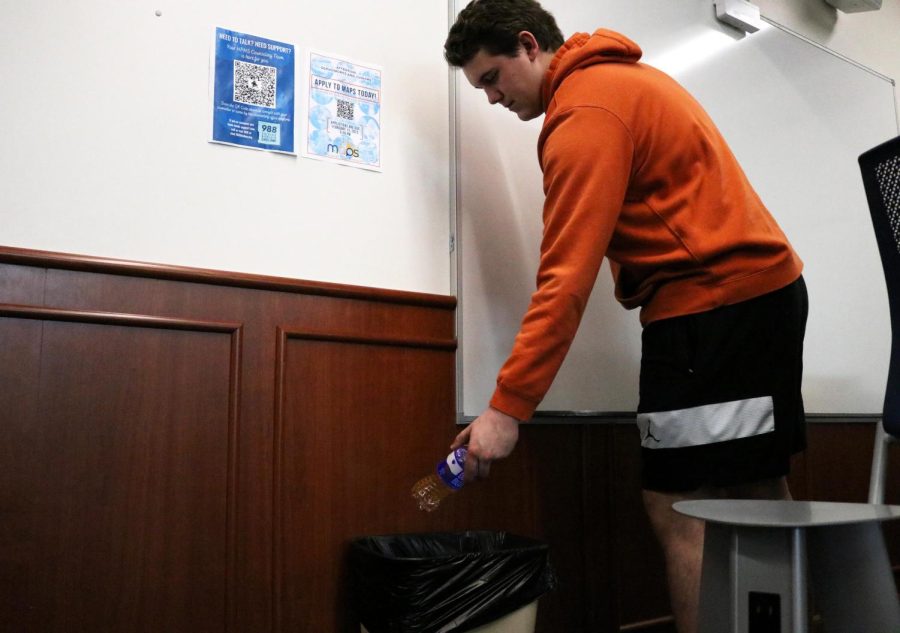The last time senior Kate Mader saw a recycling bin in a Highland Park classroom was in middle school.
“I can’t think of a time I’ve seen a bin in any of my high school classes even though it seems like I should have,” she said.
There are currently no recycling programs running at the school, but this hasn’t always been the case.
“[Recycling programs] have been something that has come and gone,” AP Environmental Science teacher Aaron Scott said. “They’ve had recycling clubs and tried to implement it.”
The efforts to recycle in the past have been somewhat successful, but always ended up failing in the end.
“We have tried aluminum can recycling with the holes in the top of the bins,” Food Service and Cafeteria Manager Joan Bayes said. “It was done by one of my employees, so she would collect and wash all of them.”
Bayes says student council even tried selling reusable water bottles, but like every other recycling program it failed to stick around.
The issue that has continued to plague the school’s attempt to start recycling is not collecting the waste, but getting rid of it. According to Scott, to create a successful recycling program, there needs to be full cooperation between everyone at the school.
“At the end of the day, you would see people take the trash out and the recyclables out and they all ended up in the same receptacle,” he said.
Physics teacher Tiffany Syfert agrees on the importance of recycling and believes that if the process is not time consuming for teachers and students, it could be very easy to implement.
“I think that a decent number of students would try to recycle given the option,” she said. “We have to create a culture to recycle.”
Mader says that students could easily take part in another recycling effort. Additionally, she explains that creating a clearly marked and reliable recycling disposal system is the best way to ensure all the work inside the school to get people to recycle is actually disposed of the correct way.
“I think [recycling at the school] is possible. Not necessarily convenient, but important,” she said. “I think given the option, with recycling bins clearly labeled “bottles” or something similar, students would sort their trash.”
Although these solutions may seem easy, over the years, nobody has been able to consistently implement them. Part of the issue of why we don’t have recycling is that people aren’t always willing to take the extra step to recycle. Scott believes that with enough emphasis on the significance of a recycling program, students would rise to the occasion.
“Knowing this community and knowing this population of students, they want to do the right thing,” he said.
In his opinion, the only way for a school of this size to make a recycling program work means extra effort on the students and the teachers to keep the momentum going.
“I’ve been [at Highland Park] for almost 20 years and [recycling] has come and gone dramatically, and it really depends on student attitude,” Scott said.
Mader agrees with Syfert in which Highland Park has to create its own recycling culture in order for recycling to become a common occurrence at the school. She says she would be more than willing to be part of the initiative for there to be a better recycling culture at the school.
“Recycling is so important and I’d give time to make sure Highland Park recycles,” Mader said. “If more people started doing it, hopefully it would be seen as irresponsible if someone threw their bottles into a trash bin if there was a recycling bin right next to it.”



